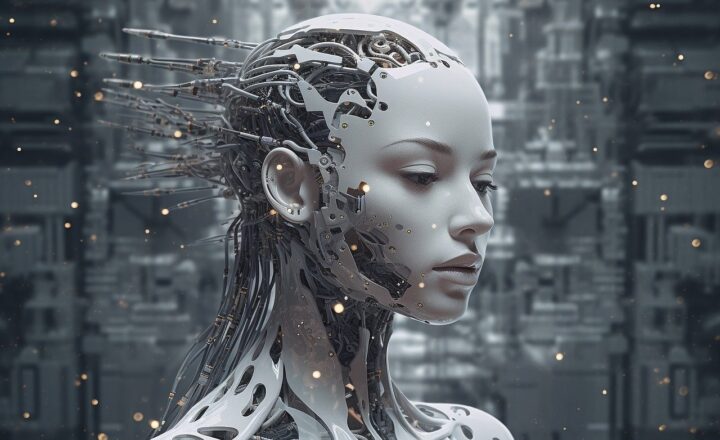How Artificial Intelligence Is Revolutionizing Industries Around the Globe
November 16, 2024

Artificial Intelligence (AI) has emerged as a transformative force across various industries, reshaping the way businesses operate, enhancing productivity, and redefining customer experiences. From healthcare to finance, transportation to entertainment, AI is not just a technological advancement; it is a paradigm shift that holds the potential to innovate and streamline processes in every sector.
1. Understanding Artificial Intelligence
AI refers to the simulation of human intelligence in machines programmed to think, learn, and make decisions. This technology can analyze vast amounts of data, identify patterns, and execute tasks with speed and accuracy. AI encompasses a wide range of techniques, including machine learning (ML), natural language processing (NLP), computer vision, and robotics. By leveraging these technologies, industries can improve efficiencies, reduce costs, and enhance product and service offerings.
2. AI in Healthcare
The healthcare industry is experiencing a significant transformation due to AI integration. Applications in medical diagnostics, patient care, and drug discovery are becoming more prevalent. Here are some notable impacts of AI in healthcare:
- Enhanced Diagnostics: AI algorithms can analyze medical images and detect abnormalities with remarkable accuracy. For instance, AI systems can identify signs of diseases such as cancer, allowing for earlier and more accurate diagnoses.
- Personalized Treatment Plans: By analyzing patient data, AI can help create tailored treatment plans based on individual health profiles, leading to better outcomes and more efficient care.
- Drug Discovery: AI accelerates the drug discovery process by simulating interactions between drugs and biological systems, significantly reducing the time and cost involved in bringing new medications to market.
The integration of AI in healthcare is paving the way for a future where medical practitioners can make better decisions backed by data-driven insights, ultimately improving patient care and health outcomes.
3. AI in Finance
The finance sector is another area where AI is causing major upheaval. Financial institutions are increasingly relying on AI for a variety of applications, including:
- Fraud Detection: AI models analyze transactions in real-time to identify unusual patterns that may indicate fraudulent activity, allowing for quicker responses and enhanced security.
- Algorithmic Trading: AI systems can process vast amounts of financial data, identify market trends, and execute trades faster than human traders, often leading to higher profits.
- Customer Service: AI chatbots are revolutionizing customer interactions by providing instant assistance, answering queries, and performing transactions, significantly improving customer satisfaction and reducing operational costs.
AI in finance not only enhances operating efficiencies but also transforms the way companies interact with their clients, creating a more seamless and informed financial ecosystem.
4. AI in Transportation
The transportation industry is witnessing a revolution driven by AI, particularly with the rise of autonomous vehicles and smart logistics. Key applications include:
- Self-Driving Vehicles: Companies like Tesla and Waymo are at the forefront of developing AI systems that enable cars to navigate and operate without human intervention, promising safer and more efficient transportation solutions.
- Route Optimization: AI algorithms analyze traffic patterns and historical data to determine the most efficient routes for delivery trucks, reducing fuel consumption and improving delivery times.
- Predictive Maintenance: AI is used to predict equipment failures before they occur, allowing for proactive maintenance and improvements in operational efficiency across transportation fleets.
AI’s impact on transportation not only enhances safety but also streamlines operations, resulting in cost savings and more reliable services.
5. AI in Entertainment
The entertainment industry has embraced AI in various forms, from content creation to personalized recommendations:
- Content Recommendation: Platforms like Netflix and Spotify use AI algorithms to analyze user behavior and preferences, delivering personalized content suggestions that enhance the user experience and increase viewer engagement.
- Deepfake Technology: AI techniques are being leveraged to create realistic alterations in video content, raising ethical questions but also offering creative possibilities for filmmakers.
- Scriptwriting and Production: AI tools assist in script analysis, predicting which genres or themes will resonate with audiences, thus streamlining the filmmaking process.
By integrating AI, the entertainment industry is enhancing content delivery while also innovating how stories are told and experienced.
6. Challenges and Ethical Considerations
While AI presents numerous benefits, it also raises several ethical concerns and challenges that must be addressed:
- Bias in Algorithms: AI systems can perpetuate existing biases if they are trained on skewed data, leading to unfair treatment in sectors like hiring or law enforcement.
- Job Displacement: Automation through AI may lead to job losses in certain industries, necessitating the need for retraining and reskilling the workforce.
- Data Privacy: The use of AI often involves the processing of sensitive data, raising concerns about user privacy and data security.
Addressing these challenges is crucial for ensuring that the advancements brought by AI benefit all segments of society and contribute positively to the global economy.
Conclusion
In conclusion, AI is revolutionizing industries across the globe by facilitating enhanced efficiencies, innovative solutions, and improved customer experiences. As technology continues to advance, the potential for AI to shape the future of work and life is boundless. However, it is imperative to navigate the ethical landscape and address challenges posed by AI to create a future where technology serves humanity effectively and equitably. Embracing AI is no longer just an option; it is a necessity for organizations that aspire to remain competitive in the rapidly evolving digital landscape.







